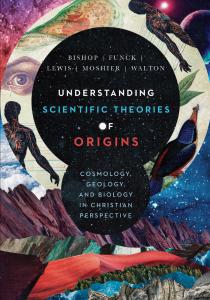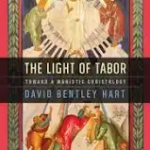I am leading a discussion class at our church using a Veritas Forum dialogue at the University of Cincinnati between N.T. Wright and Philosophy professor Heidi Maibom. It is an interesting conversation – far deeper than it seems at first glance or listen. After giving an introduction to their respective worldviews Wright and Maibom (previous post) dive into the first big question: How do we know what we know? You can find the whole Veritas Forum conversation here. The link should start at this question. The discussion of knowing runs from 22:45-35:38. An edited excerpt with Wright’s comments on knowing is also available. and embedded below.
Wright introduces his thoughts on this question using the concept of love. It seems a strange way to think about knowledge and knowing. It certainly struck me as a challenge to understand – but it makes sense. As they go on Prof. Maibom doesn’t agree with the language of love, but does agree with the general sentiment.
Wright (around 22:45 in full video, or the beginning of the excerpt above):
We are missing an element here and it is the element of love. Because the danger with talking about knowledge is that it either tries to get to an unobtainable objectivity where I get out of the picture entirely and I’m simply telling you objectively what is out there which is actually unobtainable, or it collapses into subjectivity to which somebody can say you only think that because it suits your interests, that it may be true for you but it’s not true for anybody else, etc. etc. And I want to say that in many philosophical traditions, and certainly in mine, the notion of love transcends that subject object divide because when I genuinely love somebody or something I celebrate what it is or what that person is in themselves but at the same time this is not in my own interest, in the sense that if it is, then it isn’t love, it is simply manipulation of some sort. And I want to say that when you run an epistemology of love, through whether its scientific knowledge, whether it is artistic knowledge, whether its theological knowledge, it then sheds light in both directions, on the nature of the ideas we have which can then get tested out in ordinary every day reality or on the question how we know what we know, which is in front of us. So I would want to put love back into the picture and I observe that in western culture over the last two hundred years love has been systematically screened out.
Prof. Maibom questions the concept of love in knowledge. While taking an empirical point of view, she notes that critical testing is essential and brings up the need for critical engagement in community and the necessity of testing ideas. “We stand, on the shoulders of, maybe not giants, but a lot of normal sized human beings all stacked up.” However, Maibom and Wright are really not all that far apart. Wright responds: (around 30:40 in the full video, or 3:19 in the excerpt)
What I mean by love is part of that engagement with other knowers who are trying to know things at the same time as we are, and who will say no you’ve got that wrong, or you’ve forgotten that bit of evidence or whatever. But it is also the kind of generosity of the relationship with the evidence itself whether it is the observation of planets, letting the planets be what they are, letting them surprise us. Unlike the kind of astronomers who’ve got their fixed theories and we are going to make sure the data conform to that. Then mutatis mutandis in all sorts of other fields as well, having the generosity of spirit to allow the data to as I say surprise us and perhaps to shock us, but at the same time, not imagining that this is objective in the sense of its just out there and I’m just a fly on the wall observing it but recognizing I am in a relationship with this data in some sense or other and that therefore I have to be self-critical about that and I have to allow myself to hear the critical voices saying are you sure you’re not just manipulating it. So that is part of what I mean by love in that context and as I say, I think we have got into a bit of a trap in the Western world certainly do in our generation know far more than has been known and half of its goodness is out there in distorted form on Wikipedia. But the question is what are we going to do with that.
The idea that love plays a role even in “scientific” knowing will come across as something of a stretch. Love and chemistry or quantum mechanics are not often thought of as intimately related. But Wright’s point is that we have to go where the data takes us – and this is one aspect of a relationship of love with God’s creation. An interesting idea to consider.
Heidi Maibom points out that while objectivity is unobtainable, we are still trying to move in a direction of greater objectivity. Rather than love, a better concept is the the idea of emptiness. “We should try to see things as they are in themselves as opposed to simply a foil for our projections.” In reality Wright and Maibom are not all that far apart here, either. Wright responds: (around 32:58 in the full video, or 4:42 in the excerpt)
For a Christian epistemology in so far as I would articulate it, I would say I shouldn’t be trying to say something which is not my point of view. There is no such thing as a point of view which is nobody’s point of view. And we can have different points of view of the same object and we can talk together about that. There’s a lovely line in an old English poem about painters in God’s new world who will paint the thing as they see it for the God of things as they are. In other words, there is a sort of epistemological humility which says that only God actually sees them as they really are. But God wants to paint the thing as we see it to bring our perspective to what we are looking at into the public world, into the public space, and perhaps in the form of beauty not least.
We need the humility to realize that we do not now, and never will have complete understanding. We need to be open to criticism, reconsideration and revision. Only God sees the world as it actually is – but we can learn and grow in understanding. We love God’s creation as we strive to understand it better and better (standing on the shoulders of the normal-sized humans who came before).
Does an epistemology of love make sense?
What does this mean for us as Christians?
If you wish to contact me directly you may do so at rjs4mail [at] att.net.
If interested you can subscribe to a full text feed of my posts at Musings on Science and Theology.
















